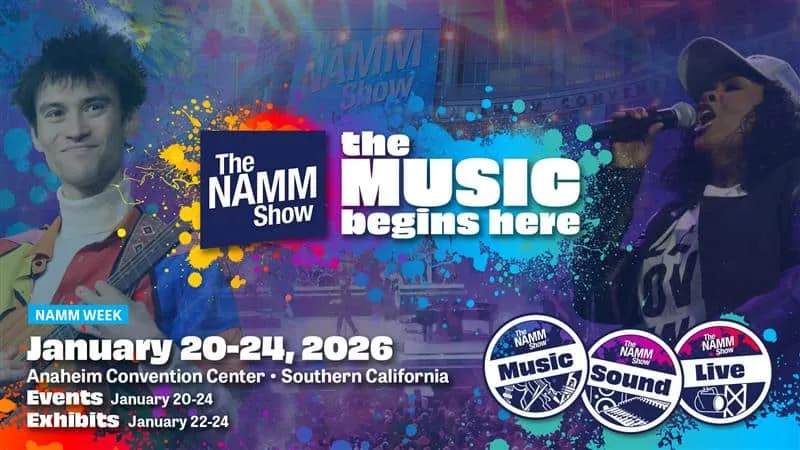By Mike Masnick of Techdirt.
At the always wonderful SF Music Tech conference yesterday, I went to what should have been a fascinating panel discussion about "artist revenue streams." It had Kristin Thomson from the Future of Music Coalition, talking about their wonderful artist revenue streams project, as well as Steve Rennie, who manages the band Incubus, among others. And then there was the third panelist, East Bay Ray, of the band The Dead Kennedys.
Despite that band once mocking the whole "home taping is killing music" argument, it appears that he's now turned into one of those grumpy old musicians who demands that everyone else figure out a way to pay him.
So, rather than an interesting discussion about artist revenue streams, the panel basically turned into a big rant from East Bay Ray complaining about all these internet sites that don't pay him. His misunderstandings were legion. He held up a screenshot of a file sharing site in Russia, showing Dead Kennedys songs on them, and noted that he doesn't get paid for those. And, of course, those sites have ads.
This is the thing that gets me. A group of music industry folks, led by Jon Taplin at USC, who don't seem to have the slightest clue about how online advertising actually works, keep insisting that when they see an ad from a big company on a site that has infringing materials, it means that "the pirates are getting rich and the artists are getting screwed."
What I find amusing is that professional musicians so often insist that others are simply not qualified to speak about the music business. And yet, they have absolutely no problem pretending they know how internet advertising works. Let's make this simple: internet display ads pay next to nothing — especially on sites like the one that Ray was complaining about.
Those kinds of sites can only get deals with complete bottom of the barrel remnant ad providers, whose payout numbers are so small that most people would laugh. Some — like Google's AdSense — only payout if people click, and these days no one clicks on banner ads. They don't even see them. These sites make next to nothing. I'd be amazed if they can clear $0.05 CPMs. That is, if they're lucky, they get five cents for every 1,000 views. If they're lucky.
Furthermore, folks like Ray are blaming the sites, which tend to be platforms or conduits for sharing, rather than the hosts or the actual people responsible for uploading the works. Either they don't understand this or they don't care, but they really seem to want to blame the middleman for the actions of end users.
Steve Rennie tried to talk Ray down a few times, with little luck. Rennie, rightly, pointed out that whining about the pennies some Russian site might get is a really fruitless activity, when there's so much opportunity to make revenue elsewhere. Why not focus on the actual revenue opportunities, instead of whining about the two and a half cents some Russian site got?
And, of course, Ray's anger isn't just at Russian file sharing sites, but basically every legitimate site as well. Even if they pay, they don't pay him enough. He, of course, singled out YouTube and further demonstrated his near total ignorance of the world by insisting that YouTube has "forced 12,000 musicians out of work." You might wonder how that's possible, and read the link for the full "math" and try to hold back the guffaws. The short version, as far as I can figure it out, is that he argues that YouTube only pays artists 35% of the revenue they get, but they should be paying 70% "like Apple." And then:
So, if they had done the same percentage as say iTunes, 30/70 instead of 65/35, that's a difference of about $600 million. Now if you take a middle class musician, say, $50,000 year, year in and year out, divide it into $600 million, that's 12,000 people that Google has siphoned the money off.
And that's 12,000 people that are now working in the salt mines of Walmart.
There are so many things wrong with this that I'm afraid to even try to list them all. First of all, YouTube revenue is incremental revenue on top of other revenue. This is revenue that did not exist at all prior to YouTube setting up ContentID and monetizing those views. This is not money that was somehow taken away from artists. Second, the revenue is not evenly distributed as his simple "division" implies. Bigger artists get more views, so even if his other nonsensical argument about how Google should fork over more of the money made sense, the "missing" money would still go disproportionately to bigger artists anyway.
And, of course, there are so many other factors at play here, including a whole bunch of musicians who only have careers because of YouTube. The fact that this "logic" is even considered seriously is so bizarre.
Rennie pushed back on some of Ray's claims, and Ray just went on something of a rampage, comparing internet sites to companies that exploited child labor in the past. When Rennie suggested that YouTube and other internet services were providing new and incremental revenue streams that simply didn't exist before, Ray referred to Rennie as "massa," which is incredibly obnoxious. He later insisted that "pirate sites are on the payroll of multinational companies," and then said that the internet companies were "pimps" and that "iTunes pays their 'girls' 70%, but Google only pays 30%." The fact that these companies created brand new revenue streams for him never seems to even enter his consciousness.
Finally, when people pointed out that there are a growing number of artists who are successful primarily because of the internet and new business models and services, he mocked those success stories, arguing that they got lucky — saying that it's "just like a casino." Apparently, he's unfamiliar with the old recording industry which was much more of a pure lottery, where most people never were even allowed in the door, and ended up making nothing at all.
Oh, and poor Kristin barely got to speak at all, despite actually being the one with lots of actual data to share, rather than angry, ill-informed, misguided rantings. Later in the day I got to speak to Dave Allen, who we've written about before, and who was a founding member of Gang of Four — a contemporary of the Dead Kennedys — and he made a key point. Whenever the conversation focuses on "but what do we do about piracy," it becomes a complete waste of time. There are so many amazing new opportunities out there, with all sorts of fantastic ways to create, promote, connect, distribute, and monetize music. Whining about "losses" is just time spent not seizing opportunities.
Related articles




![Folk Alliance Awards 2026 Winners Named [Full List]](/content/images/size/w1304/format/webp/2026/01/Folk-Alliance-Awards-2026.png)


